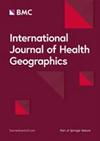瑞典急诊室可及性的更现实衡量标准
IF 3
2区 医学
Q2 PUBLIC, ENVIRONMENTAL & OCCUPATIONAL HEALTH
引用次数: 0
摘要
确保紧急医疗服务(EHC)的可及性是医疗服务规划者的一个重要目标。传统的可及性分析通常依赖于常住人口数据。然而,基于固定人口数据的资源分配可能会导致对急诊室人口可及性的错误假设。因此,在本文中,我们通过基于地理信息系统的网络分析来计算瑞典急诊室的人口可达性。利用静态人口数据和动态人口数据,我们研究了静态人口数据如何高估或低估由时间动态人口数据得出的人口规模的时空模式。我们的研究结果表明,传统的人口可及性测量方法往往会低估人口规模,尤其是在农村地区和较小的急诊室集水区,而不是城市和较大的急诊室--特别是在夏季休假期间。因此,根据静态人口数据进行规划可能会导致资源分配不公平。这项研究的动机是考虑到瑞典正在进行的急诊室集中化,这在很大程度上取决于急诊室服务区的人口规模。本文章由计算机程序翻译,如有差异,请以英文原文为准。
Towards more realistic measures of accessibility to emergency departments in Sweden
Assuring that emergency health care (EHC) is accessible is a key objective for health care planners. Conventional accessibility analysis commonly relies on resident population data. However, the allocation of resources based on stationary population data may lead to erroneous assumptions of population accessibility to EHC. Therefore, in this paper, we calculate population accessibility to emergency departments in Sweden with a geographical information system based network analysis. Utilizing static population data and dynamic population data, we investigate spatiotemporal patterns of how static population data over- or underestimates population sizes derived from temporally dynamic population data. Our findings show that conventional measures of population accessibility tend to underestimate population sizes particularly in rural areas and in smaller ED’s catchment areas compared to urban, larger ED’s—especially during vacation time in the summer. Planning based on static population data may thus lead to inequitable distributions of resources. This study is motivated in light of the ongoing centralization of ED’s in Sweden, which largely depends on population sizes in ED’s catchment areas.
求助全文
通过发布文献求助,成功后即可免费获取论文全文。
去求助
来源期刊

International Journal of Health Geographics
PUBLIC, ENVIRONMENTAL & OCCUPATIONAL HEALTH -
CiteScore
10.20
自引率
2.00%
发文量
17
审稿时长
12 weeks
期刊介绍:
A leader among the field, International Journal of Health Geographics is an interdisciplinary, open access journal publishing internationally significant studies of geospatial information systems and science applications in health and healthcare. With an exceptional author satisfaction rate and a quick time to first decision, the journal caters to readers across an array of healthcare disciplines globally.
International Journal of Health Geographics welcomes novel studies in the health and healthcare context spanning from spatial data infrastructure and Web geospatial interoperability research, to research into real-time Geographic Information Systems (GIS)-enabled surveillance services, remote sensing applications, spatial epidemiology, spatio-temporal statistics, internet GIS and cyberspace mapping, participatory GIS and citizen sensing, geospatial big data, healthy smart cities and regions, and geospatial Internet of Things and blockchain.
 求助内容:
求助内容: 应助结果提醒方式:
应助结果提醒方式:


